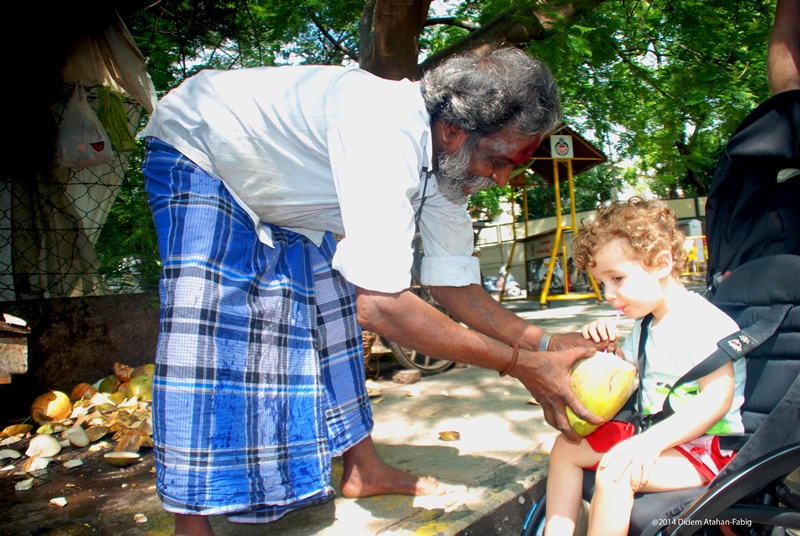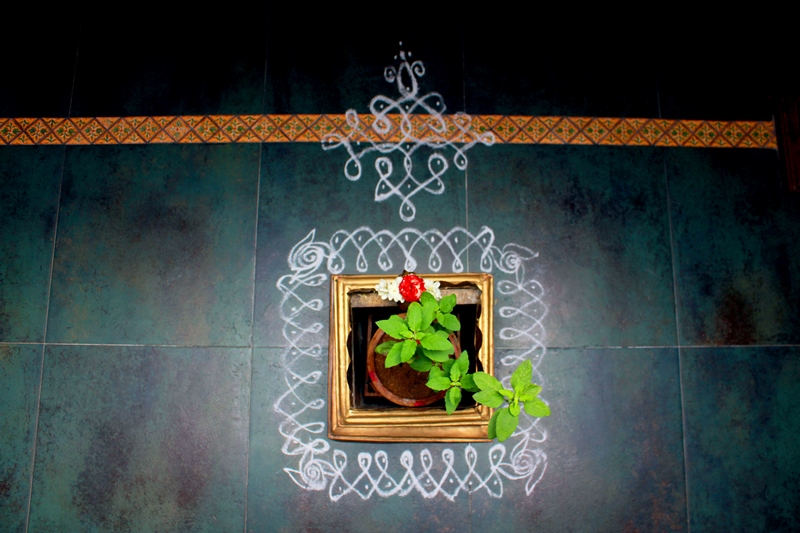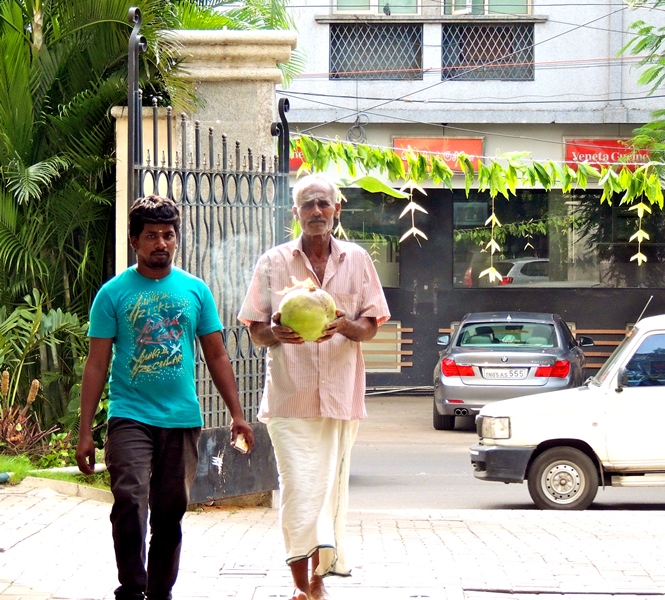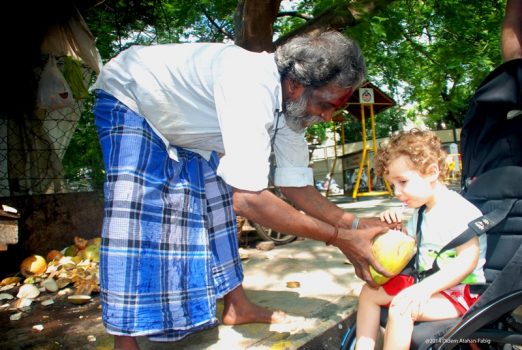Belief in the adage of ‘as you sow, so shall you reap’ is strongly embedded in Indians’ minds – and overlaid by multiple beliefs and superstitions that influence their behaviour and decisions on a daily basis

Indians are disposed to believe in supernatural influences, particularly with regard to life’s successes or misfortunes. Belief in good or bad luck is integral to the lives of many Indian people; not everything that’s taught requires a rational or scientific explanation. This manifests in concepts and actions that are practised across the country.
Taking a Closer Look
The adage ‘As you sow, so shall you reap’ exists in most major philosophies. In India, this is encapsulated in the idea of karma, which came from Hindu thinking in ancient times but which still dictates behaviour in modern India and encompasses all other values. What you do comes back to you – so, if you don’t want to be lied to, then don’t lie; if you don’t want to be kept waiting in a meeting or by a customer, then don’t keep others waiting; if you don’t want your spouse to be flirted with, then please don’t flirt with other people’s spouses.
This concept motivates the behaviour of even the most impoverished in India. Although there are so many people living in difficult situations, the amount of social unrest is less than would be expected in other parts of the world. This comes from the underlying belief that what I have now, good or bad, is the result of what I have done, good or bad, in this lifetime but it is also a throwback to reincarnation across several lifetimes. So, what I have now, in my control, is only the way that I think, speak and act from this moment on.
Belief in karma is not fatalistic. Instead, it says, I can’t do anything about what has already happened in a previous lifetime, but by doing the right things I’m in control of my future life, which will be better as a consequence.
 Of Legend and Myth
Of Legend and Myth
A principle that underlies the beliefs and superstitions of Indians is the Vedic duty of Atithi, meaning ‘guest’. Hospitality is a duty and a guest has to be honoured. Sanskrit scripture declares ‘atithidevo bhava’, meaning ‘be one for whom the guest is god’. The unexpected visitor (a-tithi meaning ‘one who comes without a date’) is the Lord himself. Indians will always make room for more people, and will share food, make conversation and learn more about the visitors so as to connect at a deeper level. Guests will be garlanded in hotels, at functions or in workplaces, offered lots of food, drink and generous hospitality. Neglecting a guest is believed to bring misfortune.
The Here and Now
 There are several things that Indians will do on a daily or weekly basis that stem from the belief that merit, punya, can be collected by doing good things, and papa, sins, avoided by shunning things that are wrong. For instance, it is believed that the ancestors come back as crows, and so feeding crows with rice shows reverence to the ancestors. Indians will look after family elders in a joint home, or give donations to an old age home. Respect is shown to nature by feeding animals or watering a tulsi (holy basil) plant, and to the ancient scriptures by committing texts to memory and repeating them to ensure religious practices live on. Charity is offered to fellow human beings by giving rice to the poor. All these things bring merit and good luck, but cannot undo the wrong things an individual may have done. If I have hurt someone, say, injured their eye, it is given that I will receive an injury back to my eye. When it happens, if I have done good things as well as bad, then perhaps the affliction will be minor, a loss of an eyelash.
There are several things that Indians will do on a daily or weekly basis that stem from the belief that merit, punya, can be collected by doing good things, and papa, sins, avoided by shunning things that are wrong. For instance, it is believed that the ancestors come back as crows, and so feeding crows with rice shows reverence to the ancestors. Indians will look after family elders in a joint home, or give donations to an old age home. Respect is shown to nature by feeding animals or watering a tulsi (holy basil) plant, and to the ancient scriptures by committing texts to memory and repeating them to ensure religious practices live on. Charity is offered to fellow human beings by giving rice to the poor. All these things bring merit and good luck, but cannot undo the wrong things an individual may have done. If I have hurt someone, say, injured their eye, it is given that I will receive an injury back to my eye. When it happens, if I have done good things as well as bad, then perhaps the affliction will be minor, a loss of an eyelash.
Cultural Expressions
 Belief in the evil eye is very common and is thought to be rooted in jealousy, attracting negative elements or misfortune. One way to ward off the evil eye is by painting demon faces on melons and pumpkins, which are then symbolically smashed in the road, or on masks that are placed in homes, offices and construction sites. A person who looks at the place with envy will be distracted by the demon face, and their jealousy is deflected and cancelled out.
Belief in the evil eye is very common and is thought to be rooted in jealousy, attracting negative elements or misfortune. One way to ward off the evil eye is by painting demon faces on melons and pumpkins, which are then symbolically smashed in the road, or on masks that are placed in homes, offices and construction sites. A person who looks at the place with envy will be distracted by the demon face, and their jealousy is deflected and cancelled out.
Similarly, a black dot will be placed on the cheek of a new-born baby or black kohl applied to the eyes. This small flaw will deter someone who might otherwise long to possess the child. A combination of a lemon, seven fresh green chillies and a piece of charcoal is hung at the doorway to protect a home from evil spirits, or tied to a new car. Eventually it will be thrown away on the open road, far from the dwelling.
All these superstitions are perpetuated in the belief that whatever someone has is given to them by the divine and by their own hard work, but they should also make sure that other people around them don’t become envious of what they have. Such superstition is well understood by people across the country, a way of thinking that binds relationships in a unique way.
World Echoes
Greeks protect themselves against the evil eye by wearing a charm called a mati, whilst the ghoulish faces carved or painted onto pumpkins during Halloween in the United States are meant to frighten away wandering evil spirits. In the United Kingdom, if someone spills salt, once a precious commodity, they will then throw a pinch of it over their left shoulder to ward off bad luck.
In Conclusion…
Belief in the supernatural has expanded to encompass Indians’ widespread belief in systems such as astrology, used to determine the most auspicious time for an activity and for shortlisting potential spouses in an arranged marriage, and in numerology, a belief in the divine or mystical relationship between numbers and events. Numerology incites Indians to pay large sums of money to buy certain number sequences for their car registration plates! The principles of vaastu, a code that dictates the most propitious layout for a building, has become a prime factor in the design and marketing of real estate in India with new buildings certified ‘vaastu compliant’.
As visitors to this land, our role is to understand the values behind behaviour and thus respect it. Who knows we may take one or two of these values back home, too!
